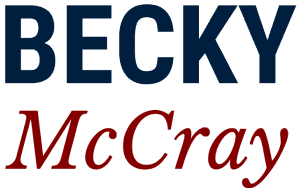How one town got stuck
I’m writing today from my front porch. This shirtsleeves weather is so much nicer than the foot of snow last week!
Years ago, a town near me won a grant to improve their downtown. They hired an architect, who drew up 3 alternative plans. The council looked them over, debated which one would work best, then sat on those plans with no further action for a couple of years. They couldn’t come to an agreement on which one to select, so nothing happened.
I understand why the council members didn’t want to pick. Did you ever stare at a flat set of plans and try to imagine it? The council members have no basis for making a choice. They aren’t experts in sidewalks, streetscapes, placemaking or urban design. They are business owners, volunteers, and retirees.
You know what I would have loved to see happen? Some tests. Some simple, Better Block style, one day, pop up, downtown trial runs. The plans call for plants? Borrow similar ones from a nursery and put them in place. Ramps? Tape lines on the sidewalk and label them. Bump outs from the sidewalks? Lay out bricks for the outline and fill them in with pavers. Stop trying to imagine what those plans represent, and go create a full-scale trial version.
Then go crazy with ideas that would make downtown more inviting. Add some seating. Organize some temporary shops or cafes. Share some art. Create things to do. Use the pocket park for little concerts, readings, performances. Do this all in one day. Pack downtown with life and activity. Ask people what they like and don’t like. Invite them to add their own ideas.
Why go to all this trouble?
First, small towns don’t have many chances to get big projects right, so it’s incredibly powerful to have trial and error results to learn from. Real-world tests make volunteer council members into better informed decision makers.
Second, experiments show people what your town could be. A pop up store may lead to a full-time business. Mini-concerts and performances may lead to more regular use of the park. Temporary clean up may inspire more meaningful renovations.
This doesn’t have to be an official town project, you know. It could be orchestrated by any group of engaged and interested people. In fact, it’s probably best if it is all volunteer. You’ll get more exciting ideas that way.
Two resources in case you want to learn more:
- How to build a Better Block
- Short story on one small town that did a Better Block project run by students (If you want more info on this small town project, email me and I’ll send you a copy of a no-longer-available news story.)
Becky
PS – Did you know that you can get our (almost) daily small business articles from Small Biz Survival by email also? You can sign up here
